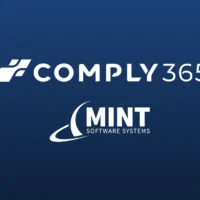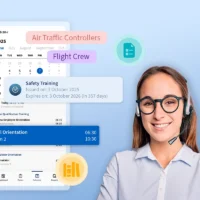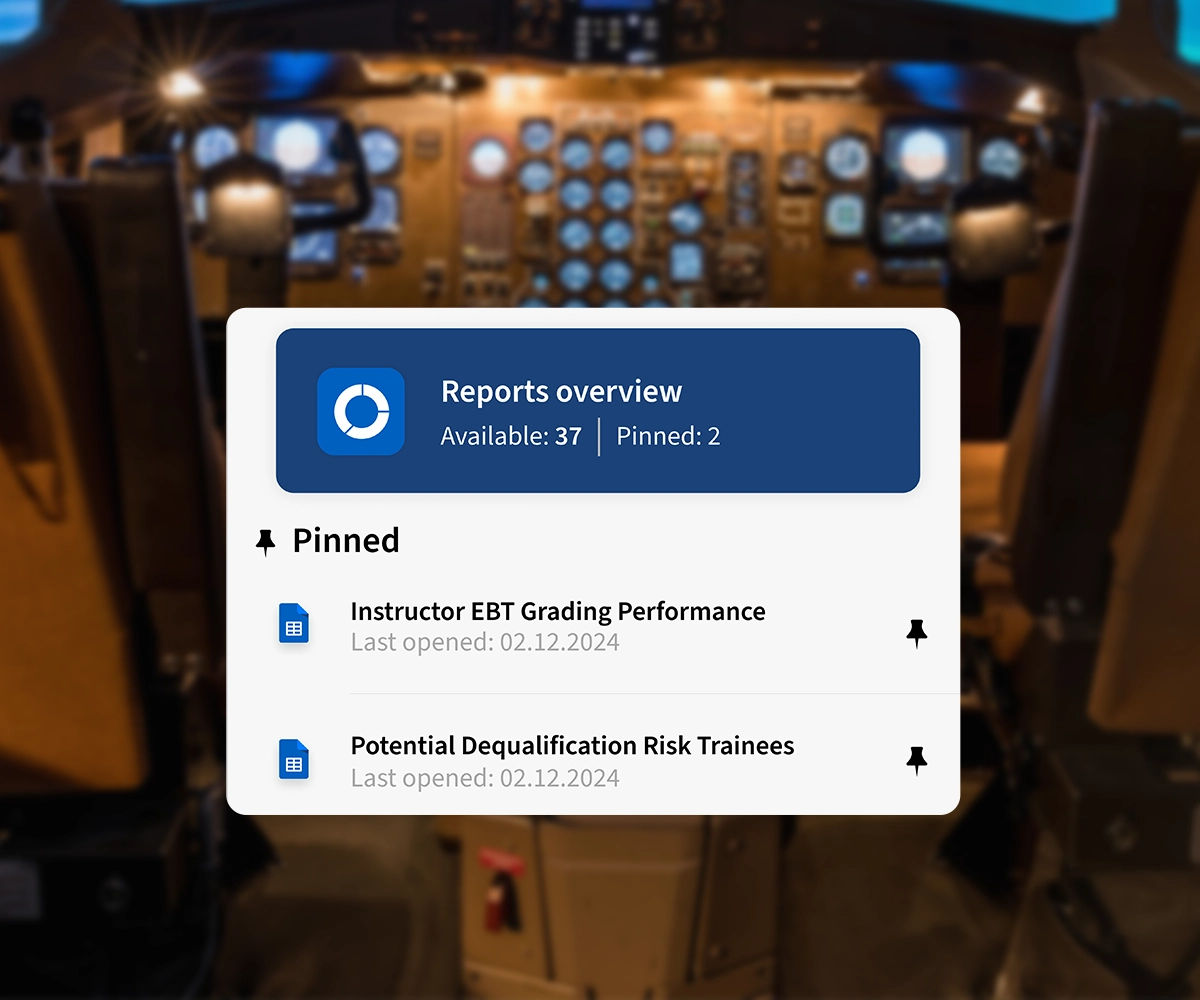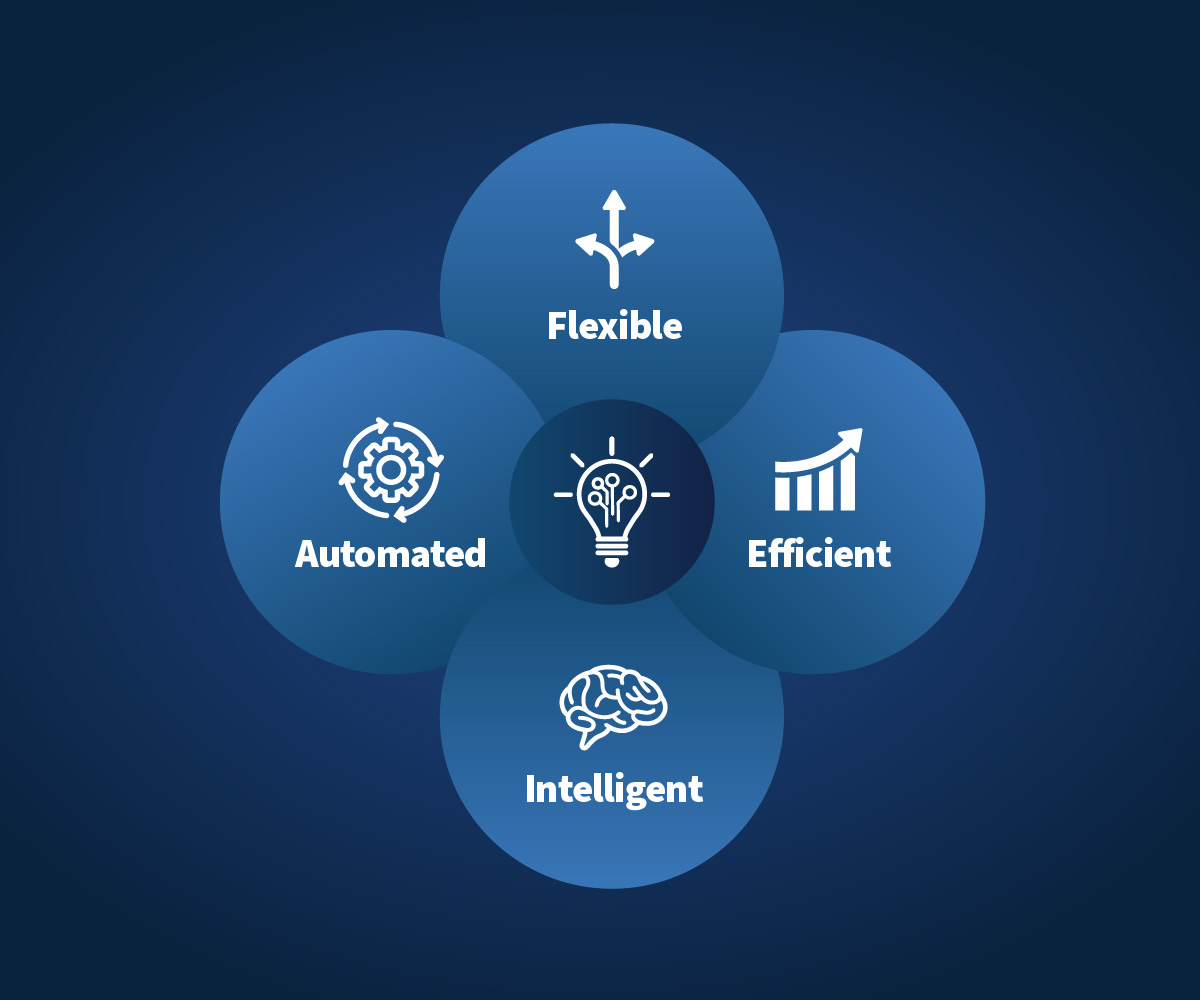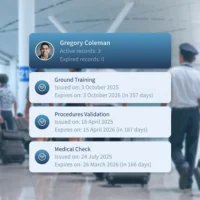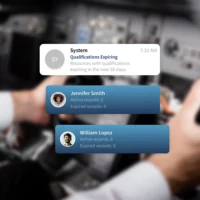Operators transitioning to Evidence Based Training programs need robust features within their Training Management System (TMS) for compliance and efficient implementation.
What is Evidence Based Training (EBT)?
Evidence-Based Training (EBT) in aviation is a safety-focused approach that adapts pilot training programs based on a data-driven analysis of real-world operational events. Trainees are evaluated across various core competencies to help pilots enhance their capability to deal with unexpected and unforeseen events.
Compared to standard training methods, an EBT program:
- Focuses on developing nine main competencies (knowledge, workload management, teamwork, and more)
- Assesses and develops competencies throughout the trainee’s career
- Tailors courses to individual trainee needs instead of continuously performing the same proficiency check programs
- Requires more complex criteria for type rating revalidation
This training methodology is becoming increasingly popular in aviation, with more airlines operating under an EBT program for pilots.
Evidence Based Training (EBT) for Safer Flight Operations
Safer flight operations is the ultimate goal of adopting an EBT program. When a trainee achieves an adequate level, their individual training is tailored to develop their skills even further to reach an effective or exemplary level. For successful implementation, operators need continuous data analysis and reporting from an EBT-compliant Training Management System (TMS) that can be configured to meet EBT requirements.
How Long Does It Take to Implement EBT?
Adopting an EBT program can be a long process. A fully operational program may take three years, as the operator first has to gain experience from a “mixed” EBT implementation before the EBT baseline can be launched.
The technical component of EBT implementation within a Training Management System (TMS) can take several months or even several years to put into place. Ultimately, it depends on several factors:
- The size of the airline’s flight crew and training department
- Its current methodology
- The capabilities of its Training Management System (TMS)
Using MINT, Finnair implemented Evidence Based Training within its TMS in just six months for a workforce of approximately 1,000 pilots.
Utilizing a TMS that can easily be reconfigured for EBT compliance and reporting reduces the technical implementation time. For airlines that are implementing an EBT-compliant TMS platform, the ability to integrate with existing systems and migrate historical records can cut down on the time required for setup.
MINT Tip: Use MINT’s front-end importer tool to quickly migrate training records and other data without code or development.
Using a Training Management System for EBT Compliance
Evidence Based Training methods demand advanced capabilities from Training Management Systems (TMS) to ensure compliance. When adopting an EBT program, the most important TMS features a training department should consider are:
-
Reporting granularity and data-driven insights from training evaluation
Robust reporting is the hallmark of an EBT program and is required for analyzing flight crew competencies with different levels of grading data. Reporting must be built to support the operator’s specific EBT implementation specifications.- Monitoring the quality and effectiveness of the EBT program
- Monitoring pilot competence development trends
- Monitoring individual pilot performance and identifying possible areas of specific competency improvement
- Monitoring grading for instructor calibration (instructor concordance assurance)
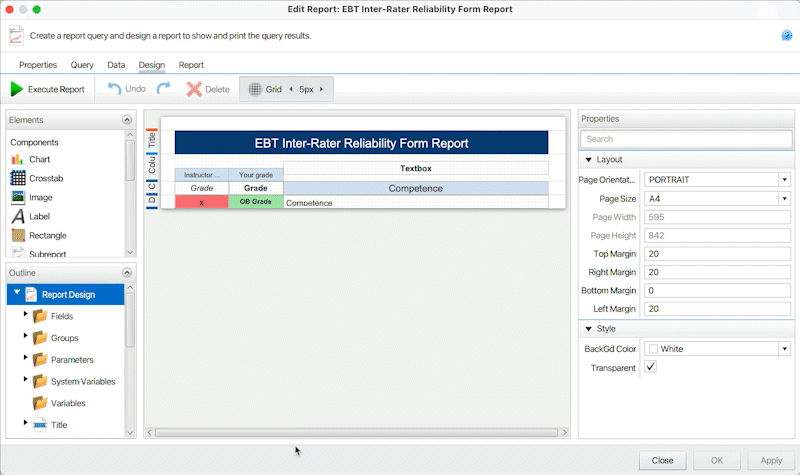
MINT Tip: Use MINT’s ReportBuilder for advanced queries to create the above EBT reports. These reports help training departments analyze trends and gain insight into opportunities to improve performance and even automate alerts for trainees at risk of de-qualification.
-
Ability to support additional types of data with unique fields
Not every TMS can adapt to the unique data requirements of operators, and a rigid Training Management System will limit training departments. Operators need to track different types of resources, both physical and human, and will have their own set of naming conventions, processes, and workflows in place. A TMS that is flexible enough to support these unique data fields is necessary for achieving the best efficiency possible.
MINT Tip: Use the custom property feature to add new data fields specific to an organization’s requirements. For example, Finnair used MINT to support Mixed Fleet Flying (MFF) and Single Fleet Flying (SFF) operations with A320, A330, and A350 fleets.
-
Type rating revalidation checks
Type rating revalidation requires more complex criteria with layers of rules that a TMS must be able to define. The system will now need to check that the type rating can be revalidated within the timeframe of the scheduled training, along with results from previous modules, to qualify a pilot for revalidation and prevent pilots from attending training events too early or too late.
MINT Tip: MINT’s ReportBuilder can handle this level of complexity and be configured to automatically perform type rating revalidation checks, ensuring all conditions are met before a type rating expires.
EBT Type Rating Revalidation Requires:
- Completion of two EBT modules within the last 12 months
- Modules must be 3 months apart
- Trainee performance must meet a certain level
- Ground training needs to have been completed
-
Ability to update curriculums and course materials
Transitioning to EBT requires updates to course materials. The TMS should be flexible to allow quick, easy updates. Additionally, operators may use a Learning Management System (LMS) integrated within the TMS to require instructors to watch a pre-recorded video of a training session and evaluate the trainee’s performance. The grading results would generate reports for overall instructor calibration.
MINT Tip: MINT makes course updates fast and easy and offers an LMS add-on for virtual learning, allowing operators to keep everything within one system. It can also integrate with an external LMS through a robust API to import grades or course completion data.
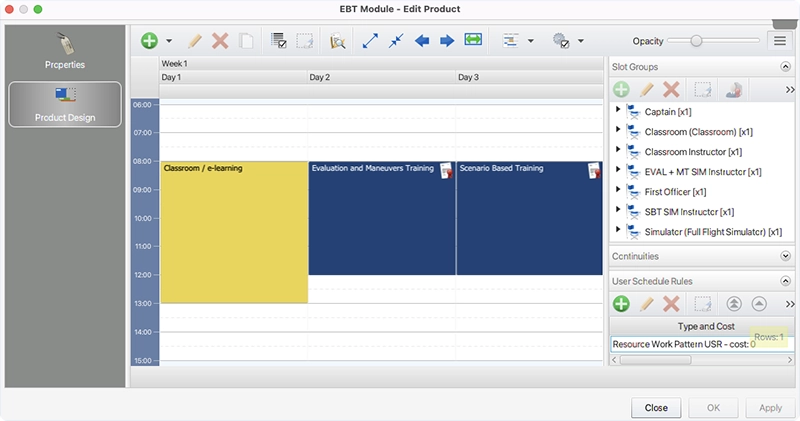
-
Competency grading forms with a flexible grading system
Operators must develop a grading scale to measure competencies across several areas, including level 2 items for “observable behaviors.” Flexibility within grading forms is an important feature. If the TMS uses rigid templates that cannot be adjusted on the front end, operators may require developers to customize the forms using code, increasing implementation time and costs.
MINT Tip: MINT’s FormBuilder requires no code or developers. It has pre-built components for grading scales and can be configured for any desired grading scenario. Existing forms can be duplicated and changed to meet EBT requirements using the powerful drag-and-drop feature.
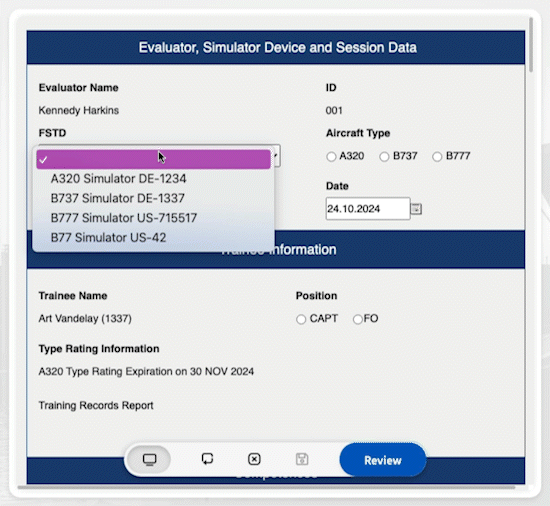
-
Competency monitoring and reporting for individuals
Managing performance data within one system allows training departments to quickly identify trainees and instructors who are performing below the standard/required level and determine the proper training sessions to improve performance. Not every TMS offers all these features and may require add-ons or integration with several platforms to make this work.
MINT Tip: MINT manages everything in one place. Create automated reports to track performance below adequate levels and prompt schedulers to proactively assign additional training.
-
Reports for instructor calibration
EBT grading should be analyzed to identify instructors who are grading too high or too low compared to the “standard” level. This analysis requires calculating mathematical statistics from raw training data. These reports may be too advanced for standard TMS capabilities and could require additional developer resources to customize.
MINT Tip: Use MINT’s ReportBuilder for advanced queries to analyze instructor grading trends for better insight into their performance. No code required!
Next Steps for Evidence Based Training Implementation
Is your organization ready to transition to Evidence Based Training for flight crews? Our MINT experts can help. We’ve assisted airlines of all sizes in successfully implementing an EBT program using our robust training management system with automation capabilities, fast integrations, and easy data migration. Request a demo to see how MINT can save you time and resources at every step of the process.
Request a Demo